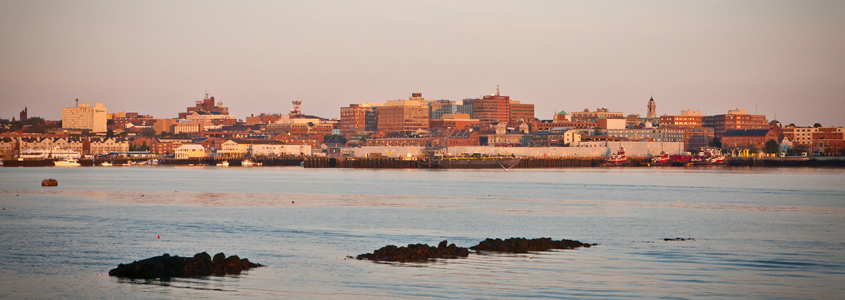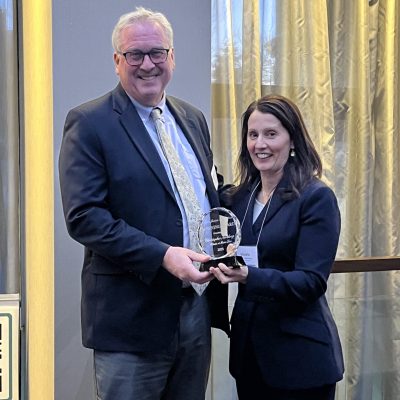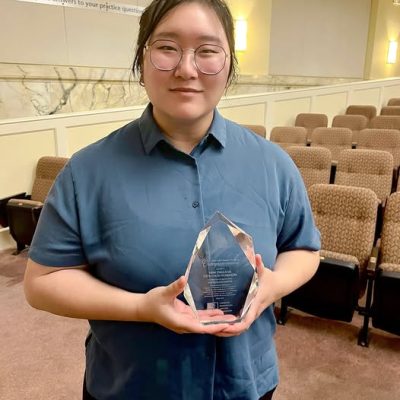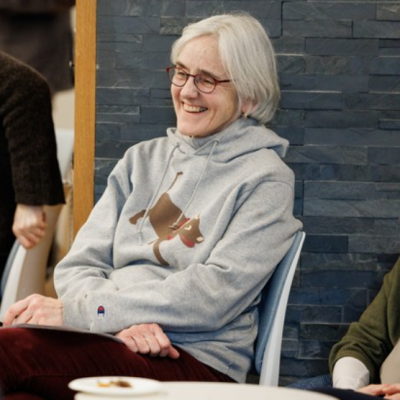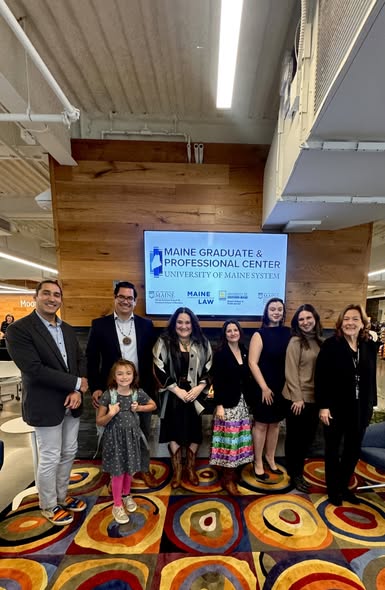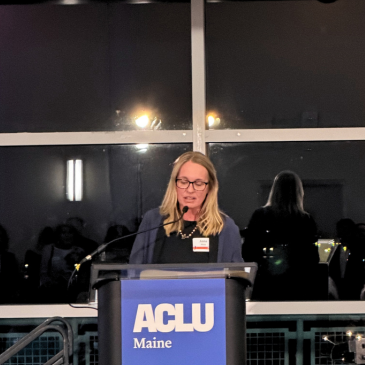In the midst of the COVID-19 pandemic, it seemed unlikely that the Judge John R. Brown Admiralty Moot Court Competition could go forward in early April as planned. Each year the University of Texas School of Law jointly holds the national Supreme Court advocacy competition with a local host law school – Maine Law this year. Law students and maritime lawyers from across the country had planned to come to Portland for the event. But by mid-March, it became clear most of them would not be able to travel or gather in courtrooms, and cancellation seemed inevitable.
But canceling was not an option for Maine Law alumnus and adjunct faculty member Robert Bocko, who chaired Maine Law’s organizing committee. “Our mission was to educate students first and foremost, and the competing students had already worked so hard,” said Bob. “We and our excellent partners in Texas were determined to hold the Competition on schedule. We saw that we had an opportunity to deliver a modern educational experience the likes of which may have never been attempted before.”
Thus, plans for in person arguments were shelved and efforts quickly shifted to arranging for students to present oral arguments to judges in virtual courtrooms. The initial goal was to hold preliminary round arguments by phone and elimination round arguments via Zoom meetings. But as familiarity and comfort with Zoom grew during practice sessions with Competition judges, confidence emerged that arguments in all rounds could proceed in virtual Zoom courtrooms where students and judges could see and hear each other wherever they were located.
“I knew we were being ambitious in trying to hold the Competition remotely on two weeks’ notice,“ said Prof. Michael Sturley of the University of Texas Law School, “but having worked with Bob Bocko in the past, I knew that we could get it done.”
On April 1, twenty-three teams from sixteen law schools began the four-day Competition. Judges near and far, most of whom had never used Zoom before, grilled students and scored presentations from their homes or offices.
All teams presented arguments in three preliminary rounds. Top teams (based on brief and oral argument scores) advanced to the quarter and then semi-final rounds. Then Duke narrowly beat Florida State in the championship round argued on Zoom to First Circuit Judge Kermit Lipez and Justices Ellen Gorman and Joseph Jabar of the Maine Supreme Judicial Court – a first for all three jurists.
“As a moot court judge, I did not think a great deal was lost being online with a visual connection,” said Attorney Charles Remmel II of Kelly, Remmel, and Zimmerman. “What is engaging as a moot court judge is the energy the students bring to their participation and arguments. I was seeing the incoming generation of lawyers presenting at their best. This makes one optimistic about the future of justice under our system.”
Two Maine Law teams, who were both coached by Professor Angela Arey, competed. Team 1 included Julia MacDonald and Susan Weidner, while Sam Martin, Jon Ruterbories, and Joe Shagoury competed on Team 2.
“It was enjoyable to connect with law students and colleagues across the country–many in their kitchens and living rooms,” said Susan Weidner. “Moot Court competitions are an exciting culmination of much time spent wrapping one’s head around a particular legal issue and preparing to argue both sides of it – this time was no different in that regard, though it was certainly a different experience to make our arguments to attorneys and judges in an online format.”
The Competition even held an awards ceremony on Zoom. Maine Law’s Team 1 took a semi-finalist award and won the award for Best Petitioner’s Brief.
Many people combined efforts to transform the Competition to virtual courtrooms. Maine Law 3L Elena Mihos served as student competition director for the event, and (among many other things) she recruited over twenty 1Ls to serve as bailiffs. Texas Law Prof. Michael Sturley, who has run the Competition for all its 27 years, and Texas Law students Mackenzie Aden and Sarah Crockett ran the virtual courtrooms with Bob Bocko. More than 40 lawyers dove into unfamiliar waters to judge arguments remotely on camera via Zoom, just as real judges across the country are now doing out of necessity.
Tulane University School of Law will host the Competition in 2021, but it will return to Maine in the spring of 2022 for oral arguments in stone and mortar Portland courthouses.

